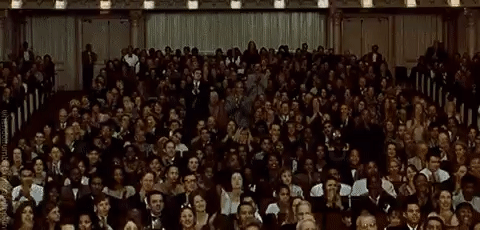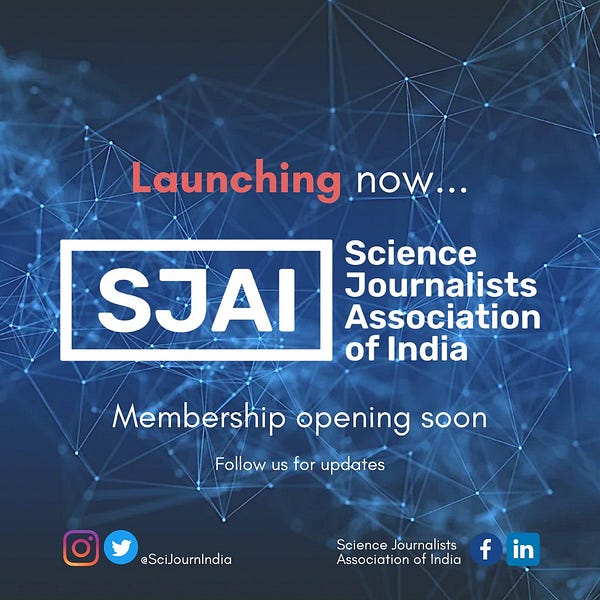✍️Science Writing News Roundup #68 (November 2, 2021)
Cover the COP26 Climate Summit like our lives depend on it + What to avoid when reporting on marginalized people.
7 tips for finding local stories in The Lancet’s new health and climate change report. Even for journalists who don’t typically cover climate change, the Lancet Countdown reports are a treasure trove of story ideas that can help explain how extreme weather events affect personal health.
🚂 Tips
What to avoid when reporting on marginalized people. Since language is ever-evolving and there are numerous intersections of identity that could be subject to marginalization, journalists should consider the full spectrum of the identities of their subjects.
What we mean when we talk about 1.5 degrees C. Learn more about the importance of 1.5 degrees C, the forces standing in the way of achieving it, and what it means to live in a 1.5 degrees C, or even warmer, world.
Improving relationships between journalists and academics: Newsrooms rely on scholars for research on industry trends but they are often reluctant to work with academia. In the end, everybody misses out. But it does not have to be that way.
🏒 Opportunities
Climate Tracker has partnered with Clean Energy Wire to offer 12 scholarships through which they will seek to delve into why and how news coverage has overlooked such a critical issue as the energy transition in Latin America. Information about the opportunity is available here in Spanish, and here in Portuguese.
EJN is offering reporting grants to support the production of in-depth stories that highlight previously untold threats to global biodiversity or explore new conservation-based solutions.





⛵️ Articles
What does it mean to be a science writer amidst the pandemic? Pulitzer Prize-winning journalist Ed Yong reveals how he compiled The Best American Science and Nature Writing 2021 all while wrestling with the idea of what it means to be a science writer.
Emily Atkin talks about objectivity and covering the climate crisis. Atkin talks with María Paula Rubiano A. about the challenges of writing about climate change as a one-person operation, and the meaning of objectivity when you’re writing about an existential threat.
The language of science: Sibusiso Biyela, science communicator and journalist in South Africa, talks to Nature Chemistry about the decolonization of science through science communication.
Cover the COP26 climate summit like our lives depend on it. The best coverage of COP26 would treat it like journalists treat the Olympics — a sports story, at its core, but one that extends to virtually every other area of news coverage.
Don’t get conflicted: What to do when your source has a COI. Today at The Open Notebook, Shannon Palus writes about how to handle conflict of interest *in sources*. What counts as a researcher COI? How do you identify one? When and how can you include a source even if they are conflicted?
🎷 News
The art of science writing: SciCommers, a program that helps scientists and engineers improve their communication skills, moves from NPR to Boston University’s College of Communication.




🖼️ Videos
Careers in Climate Change: Ayesha Tandon, Science Journalist, Carbon Brief
Law Enforcement and Genetic Data: A Discussion for Journalists
☕️ Events
NPR science correspondent Joe Palca will deliver a 2021 AAAS Kavli Science Journalism Award lecture about fighting myths and misinformation in the time of COVID-19. (November 3, 2021)
Extreme Heat: Reporting on Climate Change’s Deadly Threat (November 3, 2021)
Craft Webinar: The 5 Kinds of Children’s Nonfiction with Melissa Stewart (November 8, 2021)
Precision Medicine Research, “All of Us”, and Inclusion (November 12, 2021)
Visualizing Climate Change: An online conversation, illustrated (November 15, 2021)
⏰ Jobs and Internships
Director - Scientific Communications & Media Relations, Salk Institute, La Jolla, CA
Science Writer, Salk Institute, La Jolla, CA
Senior Science Editor, Inverse, Remote, US
Staff Writer, Gizmodo (Earther), New York, NY
Science Writer - Blainey Lab, Broad Institute of MIT and Harvard, Cambridge, MA
Science Writer and Communications Specialist, BESSD, Oak Ridge National Laboratory, TN
Fellowship - Reporter, The New York Times, NY
Health and Equity Editor, The Conversation U.S.
More jobs 👉 Science Writing News Roundup #67
👉 Don’t miss any updates from the Science Writing News Roundup:
Thanks for reading. How about sharing this with a friend? Worried you missed something? See previous newsletters here. What would you like to see in the newsletter? Please send me your suggestions by replying to this email: sciencewriting@substack.com😃


